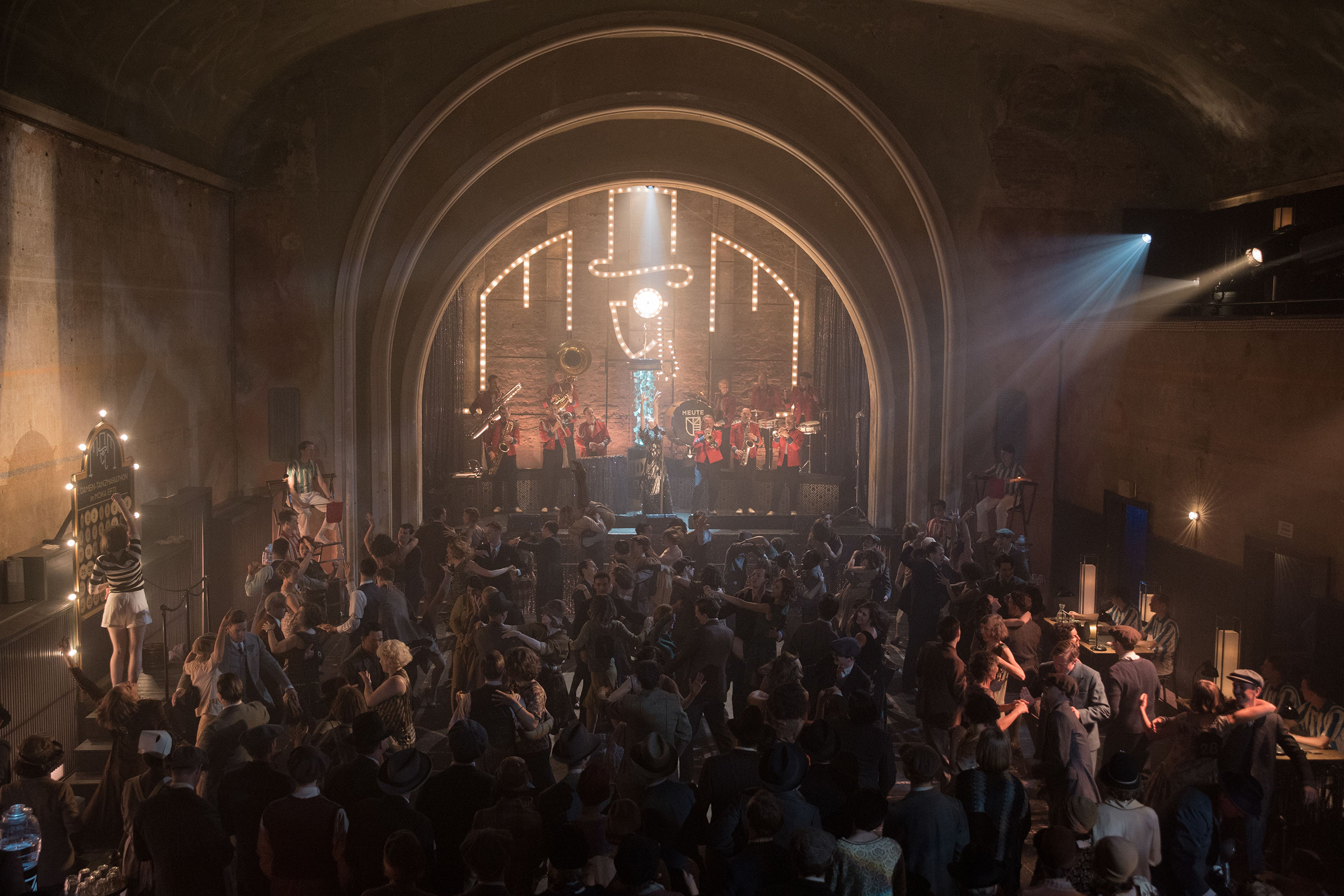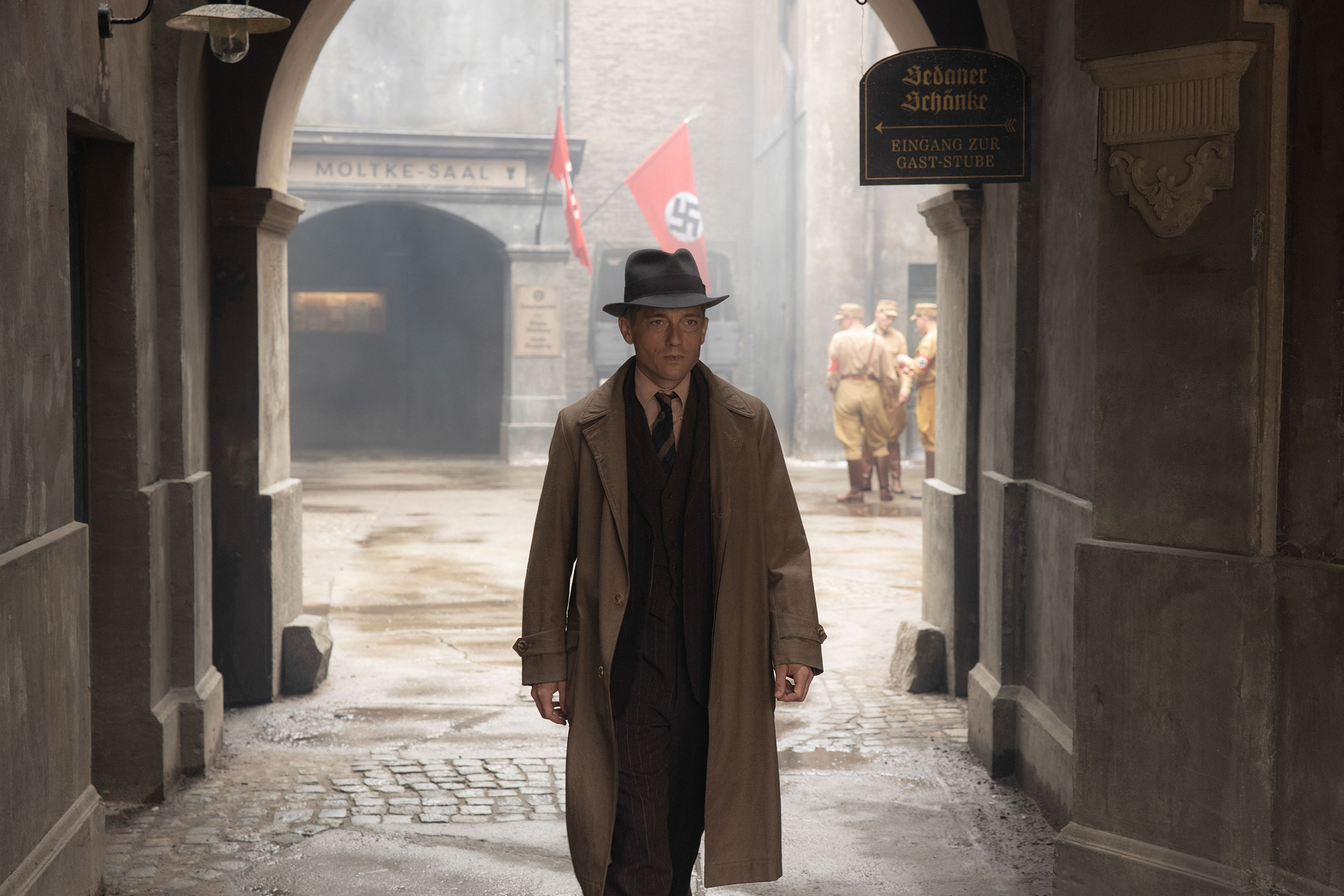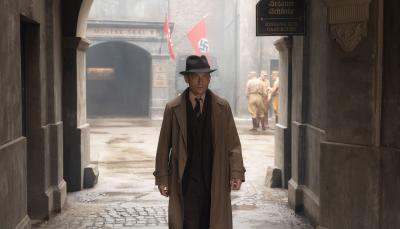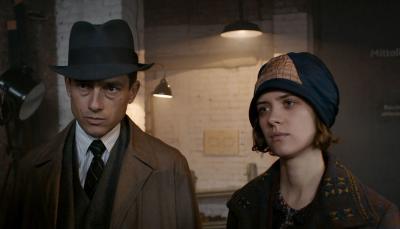'Babylon Berlin' Is Just as Good as You Remember in Season 4
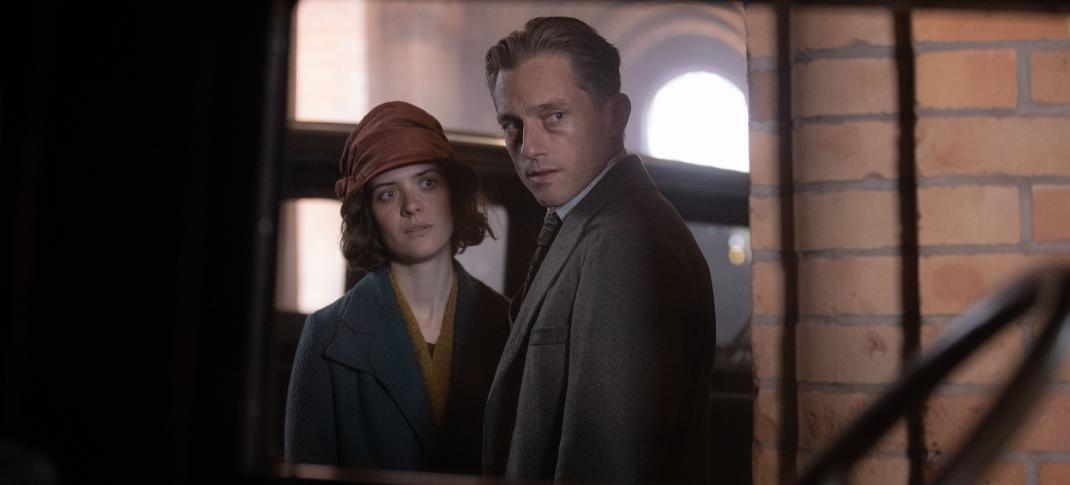
Volker Bruch as Inspector Gereon Rath and Liv Lisa Fries as Charlotte Ritter in 'Babylon Berlin' Season 4
Frederic Batier/X Filme/Creative Pool/SKY Degeto
Babylon Berlin is back, and in its fourth season – available exclusively on foreign language specialist streamer MHz Choice – continues to ascend ever more dizzying heights of storytelling about the inevitably crumbling Weimar Republic and the people who are, variously, living the high life barely scraping by, just getting on with life, and staring down the encroaching forces of fascism and Nazism that would soon engulf the world in another war. Sounds fun, doesn’t it? Despite the heavy themes and often violent plot developments, Babylon Berlin really is fun to watch.
Let’s pause for a minute for those intrepid readers who have never watched Babylon Berlin and clicked on this review headline, anyway. To bring you soon-to-be viewers of the show up to speed, here’s a succinct and enticing description from Ani Bundel’s piece on a fifth and final season being greenlit:
[Babylon Berlin] was something unlike anything on television, like an HBO experiment that had gotten loose and wound up on German TV by accident. One part interwar period piece set in the waning days of the Weimar Republic, one part musical, one part police procedural, it captured all the anxiety of the growing fascist rhetoric of the 2020 election, the sense of helplessness in the face of unstoppable history, and the hope that maybe a few good guys can make a difference, or at least survive.
You could throw richly layered entertainment caution to the wind and just start watching Season 4 completely fresh – I’m not the boss of you, and might even salute such low-stakes daring – but it’s a far better experience. The multi-stranded braid of plot will make so much more sense if you start at the very beginning (famously, a very good place to start).
Babylon Berlin’s fourth season opens on New Year’s Eve 1930, and while the Berlin we’ve previously come to know and love still exists, the line between haves and have-nots has grown bolder and sharper since the stock market crash of 1929. Unemployment is sky-high, people are starving, and homelessness is on the rise. Simultaneously, the wealthy and influential continue to party in a little bubble of privilege. Oh, and the Nazi party is flourishing, gorging itself on the desperation and socio-political grievances of Germans who crave a return to what they recall as a more stable, orderly, and safer past. Among those swept up in enthusiasm for the promises of Nazism are DI Gereon Rath and his nephew, Moritz, who have joined the SA (Storm Troopers) and Hitler Youth, respectively.
The season’s many plot lines begin to overlap and tangle immediately as Gereon, in full brownshirt regalia, literally runs into Charlotte in the middle of an SA riot in the same area where she’s photographing a crime scene (where, unbeknownst to her, her long-missing sister Toni and Moritz witness a police officer killing Toni’s boyfriend by making him fall off the roof of the Teitz department store). Are you dizzy yet, or do you think you’ll be able to hold on through the incredibly trippy opening credits?
Babylon Berlin hits the gas and scarcely lets up for even a moment across this season’s 12 episodes, and it’s a testament to the writers’ and actors’ skill that while it’s far more engaging than exhausting. Viewers could reasonably just let the many twists, turns, and interweavings of plot strands wash over them, enjoy the mysteries solved, problems kicked down the road, and relationships continuing to develop, and still emerge understanding the gist of what happens. They could also opt for an even more profound appreciation for the intricacies of where and how plotlines overlap, which make Weimar Berlin stand out as a unique place and time.
Warning: Spoilers for Babylon Berlin Season 4 follow.
In addition to the Nazi membership (don’t worry, it’s an undercover assignment!)/homelessness epidemic/Gereon and Charlotte's storylines intertwining, the links between SA leader Stennes and his conflict with Councilor Wendt, who is entangled with both a member of the Hitler Youth and MaLu Seegers, who in turn is still working for pro bono hero attorney Litten, who is representing journalists Katelbach and Heymann, who is forced to lay off Gräf’s lover Jacoby. There’s more, but you get the gist; this season resembles “The House That Jack Built.”
And yet, the dazzling narrative intertwining and symmetry isn’t a neat trick of tying things up in a bow. Babylon Berlin wouldn’t and doesn’t commit to easy plot resolution, especially when there’s a fifth season on the way, and everyone watching knows how that period ends: badly.
Plus, this is still a noir – even when Charlotte’s investigative instincts, Toni’s inside information, and the actual police destroy the local chapter of The White Hand, the snooty serial killers posing as righteous vigilantes of The True Germany, they discover that many other cities are home to the same organization. The thought of aristocrats, business leaders, and judges “cleansing” Germany at a national level provides a chilling preview of how various movements working in the shadows will eventually be co-opted into the Third Reich.
Still, the world is a complex place full of actual people living complex and occasionally self-contradictory lives; there’s plenty of room for levity and love among the soon-to-be ruins of German democracy, too. Frau Behnke, MaLu, Charlotte, and Gereon pull off a high-stakes, yet very funny, heist on a train, involving Behnke making herself the bait in the most chaste honeytrap of all time to gain access to a crucial document. Gereon and Charlotte finally, finally consummate their relationship and make up for lost time by doing so frequently, joyfully, and a little bit athletically. And because they are who they are, their pillow talk is almost exclusively about work. Rooting (presumably in vain) for you two kids!
On the side of things that either don’t work or have outstayed their welcome, we’ve got Dr. Schmidt (who may or may not be Gereon’s brother Anno) and his deeply unsanctioned experiments with amphetamines in his cult facility, the MacGuffin of the Blue Rothschild, and literally anything to do with the Nyssen family. With a few minor exceptions, time spent on any of these subjects brings the proceedings to a screeching halt in the main because they scarcely connect with any of the other, far more compelling storylines.
Still, this season re-affirms Babylon Berlin’s place as one of the best political/crime dramas of all time, one worth multiple re-watchings and intense, giddy discussion with fellow fans. Bring on the heartbreak of Season 5! We’ll be dancing our little hearts out to this season’s earworm, “Ein Tag Wie Gold.”

